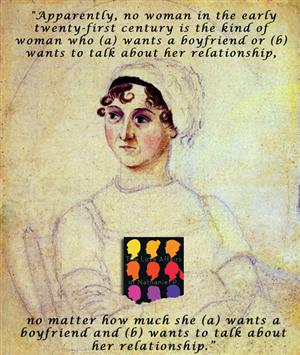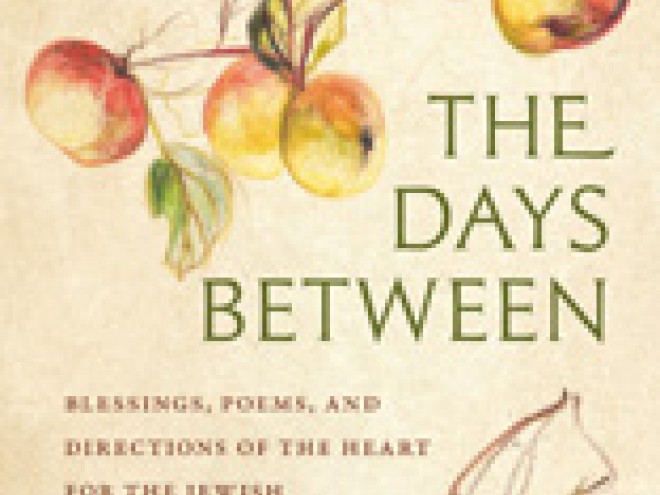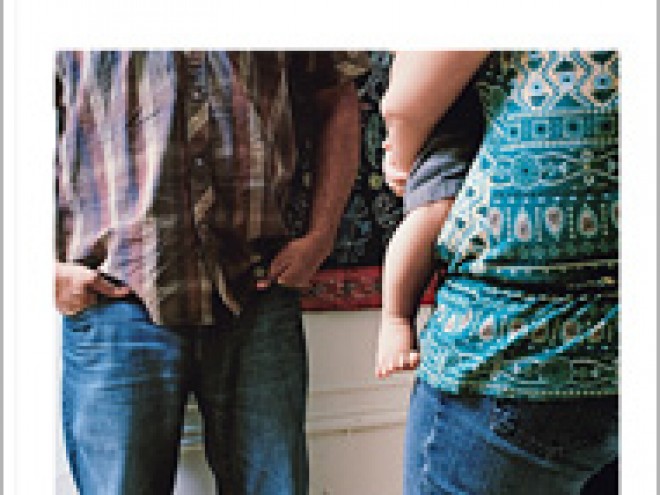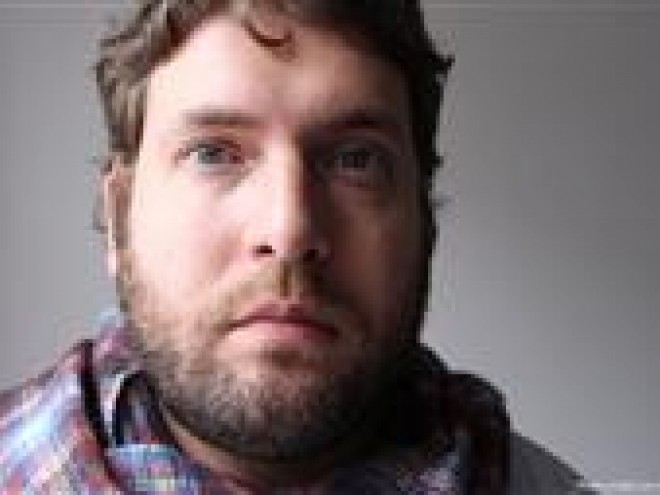The Jewish Book Council is publishing an extend online edition of our Jewish Book World interview with Adelle Waldman, author of The Love Affairs of Nathaniel P., over three installations.
Previously: Nathaniel P. and Jewishness in the postracial meritocracy
 Nat Bernstein: In a novel that is so representative of dating, modern communication (or the lack thereof), and the literary world, I couldn’t help but notice the near absence of social media — Facebook, Twitter, online sources, dating sites, etc. — in Nate’s life. Was this a conscious decision?
Nat Bernstein: In a novel that is so representative of dating, modern communication (or the lack thereof), and the literary world, I couldn’t help but notice the near absence of social media — Facebook, Twitter, online sources, dating sites, etc. — in Nate’s life. Was this a conscious decision?
Adelle Waldman: Personally, I have an iPhone, and I use the Internet a lot — so does everyone I know — but when I think of the stories of my relationships and my friendships, social media isn’t central: it’s something I do when I’m bored or I’m procrastinating. There’s an extent to which I keep up with old friends from college and high school from whom I might have otherwise drifted apart, but I don’t think my primary relationships have changed that much as a result of social media. So it wasn’t so much a conscious decision to keep that out of the novel so much as I didn’t want to put anything in unless it felt organic to the story. I wasn’t particularly interested in writing a novel that’s about social media or the internet or the way we live now in terms of the digital age; I was interested in writing a novel about emotions and gender and relationships.
NB: I really connected to the painful accuracy that The Love Affairs of Nathaniel P. delivers with regard to the modern, urban American dating scene — it felt pretty validating to read, even (or especially) at the most uncomfortable moments of Nate’s interactions with the women he’s involved with. Since the novel’s debut, do your readers now approach you as some kind of relationship guru? How do you feel about that?
AW: I’m just so happy to hear that, because in a lot of ways, I wanted the book to be validating — especially for women. I think the book can be painful to read as a woman, because Nate’s thoughts are horrifying: I basically took all these insecurities I had, the things that I most feared a man I dated might have been thinking about me, and I made Nate think them. I’ve been Hannah, who feels like she’s acting kind of crazy, and then she’s upset, and then she’s embarrassed, and then she feels ridiculous — but then I realize, no, she’s not: she’s acting in response to some of Nate’s behaviors. And in some ways I’m struck that male readers, in particular, have a lot of sympathy for Hannah, and that when they relate to Nate, they relate to Nate with a sense of shame and misgiving.
I’ve definitely been getting emails from people that are incredibly interesting, but they get very personal. I have one from last night, from a guy who wrote to me in response to the book, and he said he related to Nate a lot: he’s about 30 and dating, and he’s not proud of Nate-like-ness but he doesn’t know what to do about it. I feel like this man is telling me all of his dating life, hoping that I’m going to be able to say something like, “Oh, this is what you’re doing wrong,” and of course I can’t! I’m fascinated as a novelist, and I appreciate that he’s talking so candidly about his experience, but I just worry that I’ll let a whole lot of people down. I wish I knew… The best advice I can give women is not to date Nate. I’m fond of Nate in a lot of ways, but I don’t think he’s a good boyfriend. I think he’s a great person to be friends with, and that’s not necessarily the most satisfying advice. And to be Nate — that’s just tricky. I don’t have a five-step solution.
NB: Do you feel like they’re sort of missing the writing itself and focusing on the relationship deconstruction?
AW: I think it would be ungrateful as a writer to be too critical of anyone who’s going to read your book and then take the time to write a note about it, so I truly appreciate all of the responses I receive. After I’d worked on the novel for many years — and I was an SAT tutor, and I had no agent, and I’d never published fiction — it didn’t seem like a sure thing, and it’s just really gratifying for the book to be in the world and to get nods.
I guess in terms of the wider coverage — and I’m so wary of saying this, because I’ve been so lucky in terms of the coverage the book has gotten, and I don’t want to sound like I’m complaining, because I really feel very fortunate — but I guess if I had one complaint it’s that I think the reviews emphasize Brooklyn and the writing scene a little more than I would like. In my mind, whether unrealistically or not, I always thought of the book as more about universal issues in terms of dating, relationships, and human psychology, and I just set the book in Brooklyn among writers because of the world I knew, and because I thought it added a little color and drama. I just worry that people might not pick up the book because they think they’re not interested in Brooklyn: one of the things I didn’t want to do was spend a lot of time talking about organic everything and how Brooklyn streets are just packed with strollers — I didn’t want to do just a lot of Brooklyn satire. I set the book in Brooklyn, but it’s not so much about that. So I guess that would be my one concern.
NB: I was struck by that, too, in terms of the book’s reception. The accuracy with which you described relationships: it didn’t seem Brooklyn-specific to me in the same way that other people seem to be reading it — it seemed like very much my experience wherever I am.
AW: I’m so glad to hear that, that’s so much what I hoped. It was so much my experience before I moved to Brooklyn, as well. I moved to Brooklyn maybe when I was about thirty, and I basically met the person I’m now married to at my housewarming party when I moved there; I really didn’t spend much time as a single person in Brooklyn. The experiences I had that were most like Hannah’s, for better or for worse, are not limited to Brooklyn.
NB: You composed some really great epigrams about dating and modern relationships for the novel. How did you come up with these quips? Were they ideas you’d thought up and scribbled down over time? Did they come out of real-life conversations? Are they contemporary translations of Wilde or Austen witticisms?
AW: Most of these remarks come from a character named Jason, who’s Nate’s sort of jerky best friend, and I have to say: I would think of Jason’s thoughts while I was on the treadmill at the gym. I don’t know why; I would just have these weird thoughts, and then I’d be like, “Oh, Jason could say that!” I spent so many years on this book — four years of actively writing it, basically — so I was so steeped in this stuff, just thinking about relationships and gender, and trying so hard to figure out Nate’s psychology, to figure out how he’s going to experience these things really differently than I would, what would he think about them. There wasn’t any conscious trying to update Austen, but I found that just being so steeped in thinking about dating stuff that at random moments I’d find myself having these sort of epigramatic thoughts, and I just had to find a character whose mouth to put them in.
NB: So Jason — who feels particularly Wildean — is pretty essential to the novel.
AW: I also think that Jason is important for Nate in that Nate gets to feel that he’s better than Jason, which is how he justifies his own behavior. And I think there’s a lot of truth in that, and it’s not just Nate: we’re all a little bit like that. We all have ways of making ourselves feel better when we feel poorly, and one of them is to compare ourselves to other people and think how great we are, how nicer and better we are in comparison.
Nat Bernstein’s interview with Adelle Waldman, author of The Love Affairs of Nathaniel P., is being published serially online as part of the Jewish Book Council’s ProsenPeople blog. Part III: on the literary influences and impetuses behind Nathaniel P.Nat Bernstein is the former Manager of Digital Content & Media, JBC Network Coordinator, and Contributing Editor at the Jewish Book Council and a graduate of Hampshire College.



